|
Greenwich photos
Photos around the south London market town
(Photos ©urban75, Aug 2010)
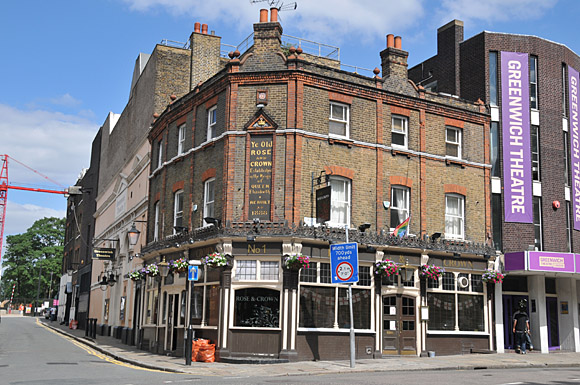
Rose and Crown pub and Greenwich Theatre.
The original Greenwich Theatre was built in 1855 as the Rose and Crown Music Hall, reconstructed in 1871 and renamed Crowder's Music Hall, and rebuilt in 1895 as the Greenwich Hippodrome.
By 1924 it had become a cinema before closing completely in 1949. Plans were afoot to demolish the building, but a long local campaign in the 60s saved the theatre.
In 1969 the theatre - now reconstructed internally and sporting a new - and rather uninspiring frontage - reopened as the Greenwich Theatre, with the capacity to seat 423 people.
The pub dates from 1871.
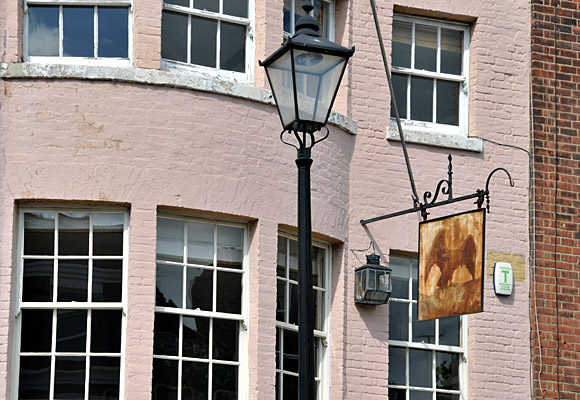
Georgian house and old sign.
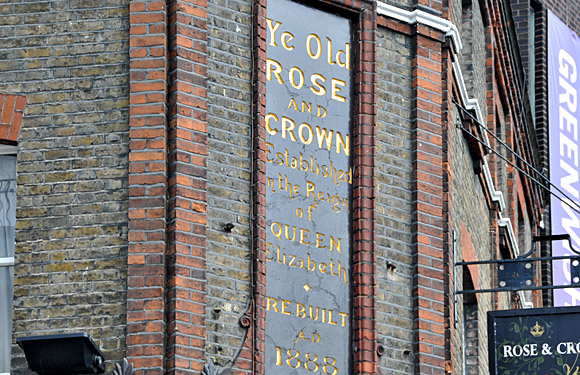
Pub detail displaying its rebuilding date of 1888.
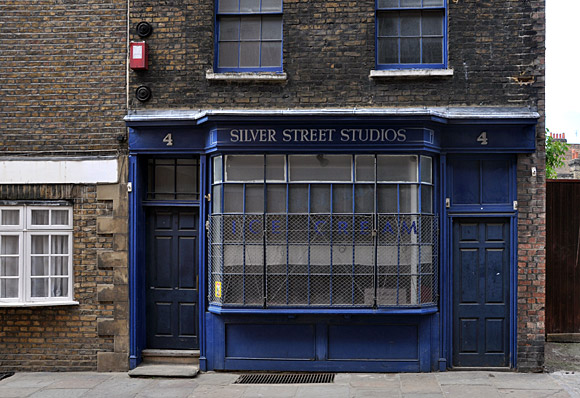
Silver Street Studios at No. 4 Nevada Street. The street was formerly known as Silver Street.
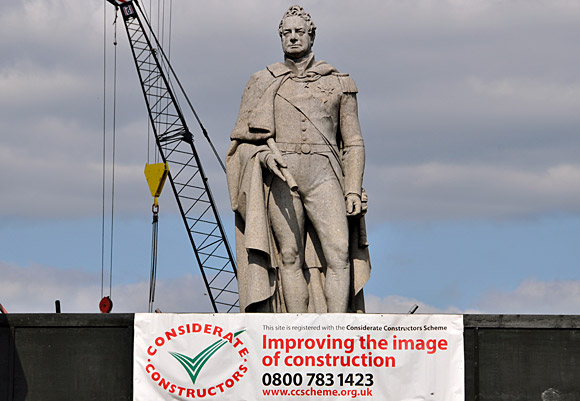
Busy improving the image of construction is this statue of the 'sailor king' William IV (1765-1837), which stands on King William Walk, Greenwich Park.
Made from Foggit Tor granite, the statue was made in 1844 ad placed in the city, moving here in
1938.
William was a bit of a lad, siring ten illegitimate children before coming to the throne, where things went a bit awry, with his two daughters by Queen Adelaide dying in infancy.
On his death in 1837, the crown passed to his niece, Victoria who then went on to rule vast chunks of the globe.

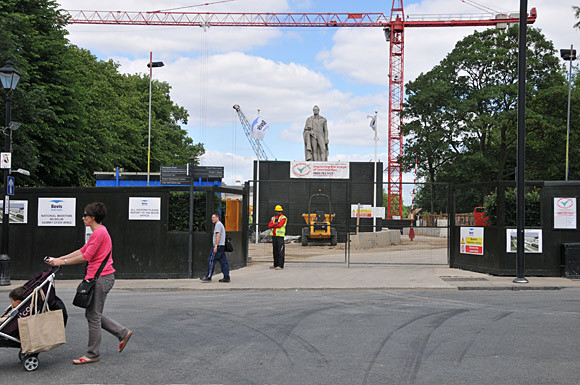
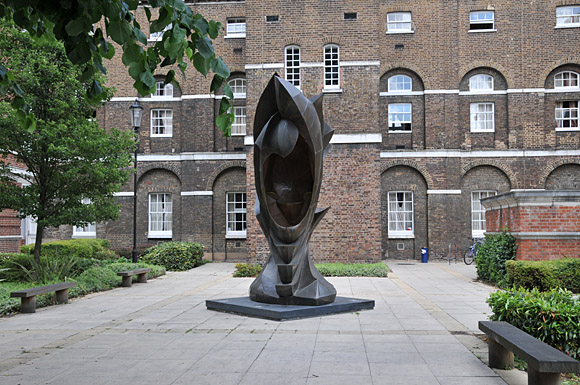
Sculpture.
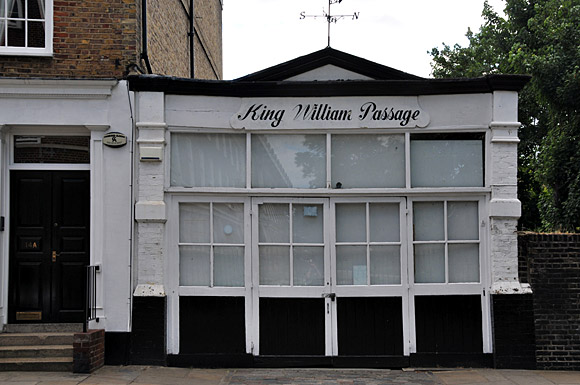
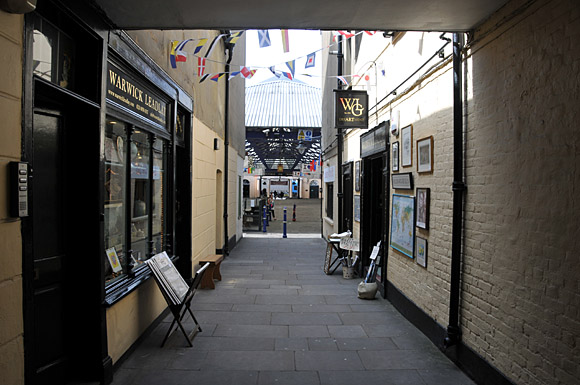
Looking towards Greenwich Market.
There's been a market at Greenwich since the 14th century, but the current market dates from 1700 when a charter to run two markets, on Wednesdays and Saturdays, was assigned by Lord Romney to the Commissioners of Greenwich Hospital for 1000 years.
The market is slap bang in the centre of Greenwich, with the surrounding buildings Grade 2 listed.
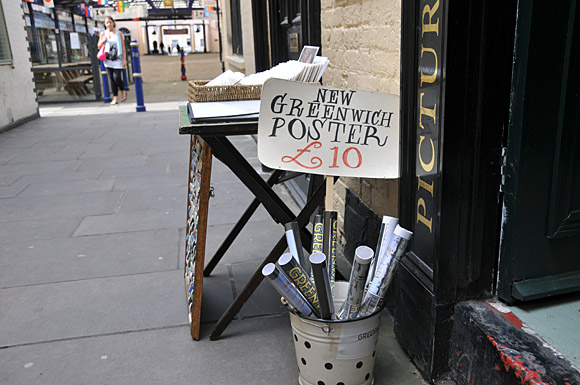

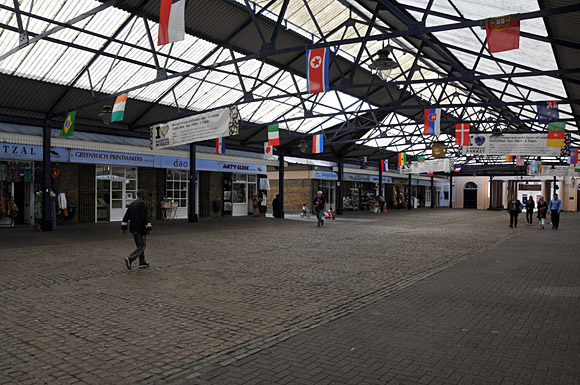
Greenwich Market.
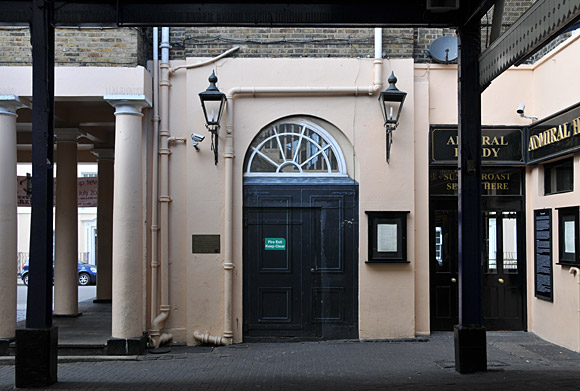
Inside the deserted market.
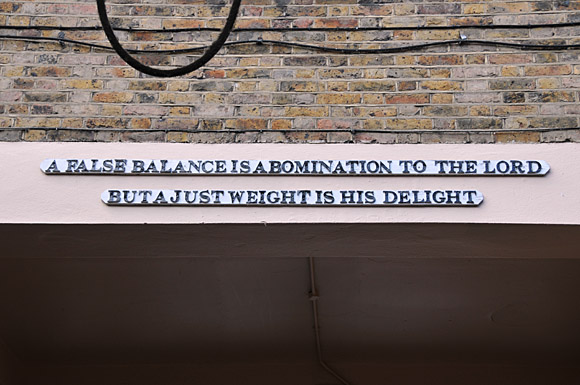
Sign above one of the market entrances.
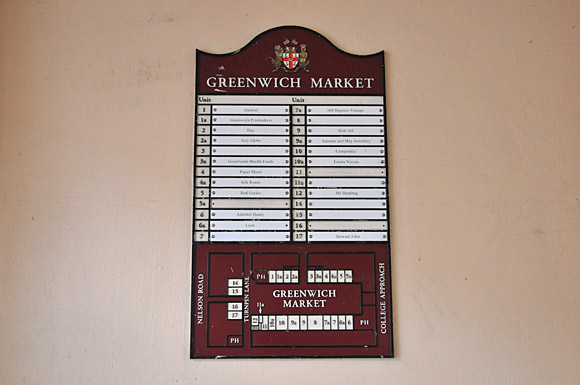
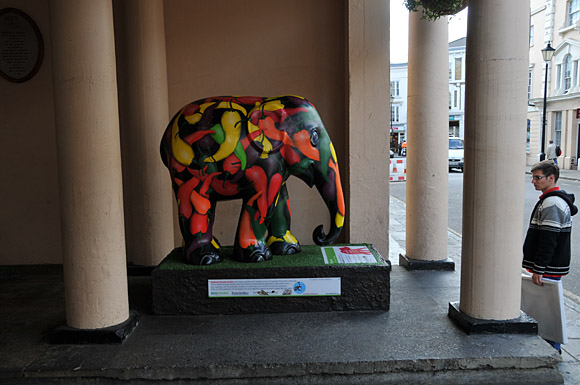
Elephant sculpture.
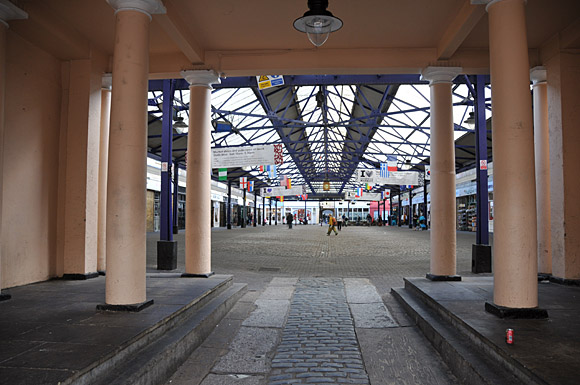
Looking into the covered area of the market.

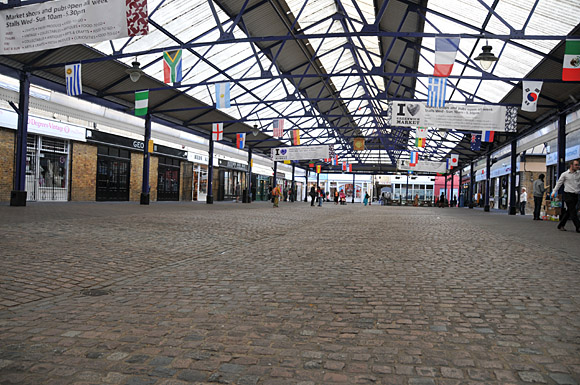
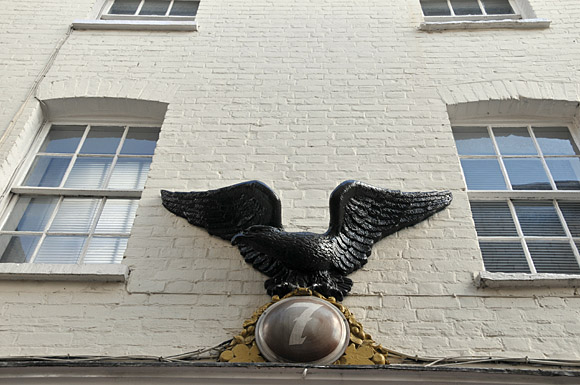
Eagle decoration.
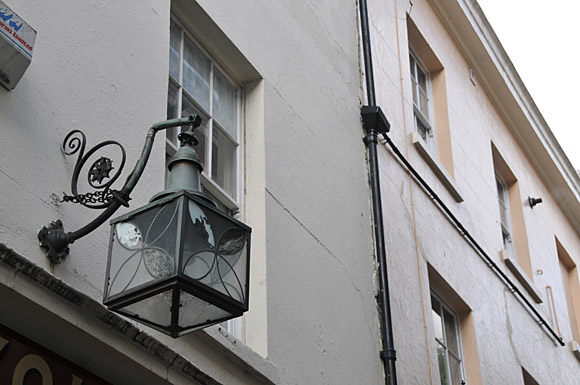
Ornate lamp.
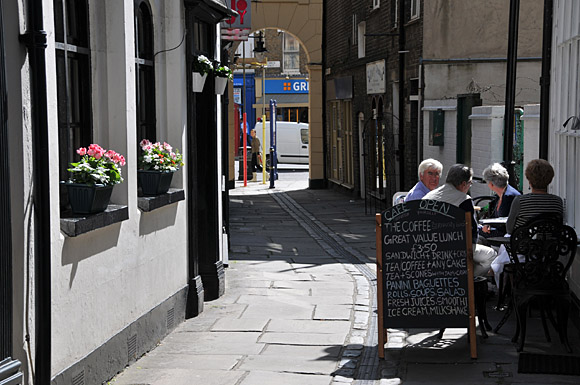
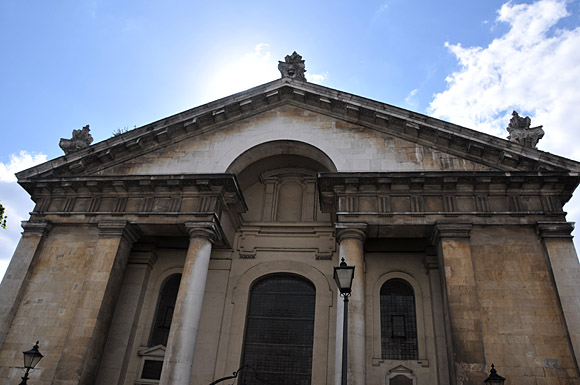
St Alfege Church, Greenwich.
Reputedly marking the place where Alfege, Archbishop of Canterbury, was killed by Viking raiders on 19 April 1012, an earlier version of this church saw Henry VIII bring baptised in 1491.
The current building was designed by Baroque architect Nicholas Hawksmoor in 1714, and completed in 1718 with the current spire dating back to 1830.

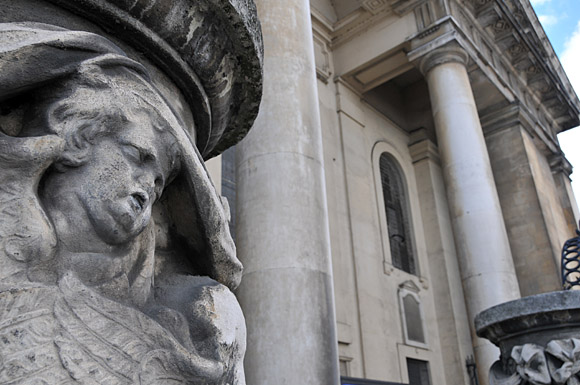
Some of the decorative street-facing angels haven't fared too well and show signs of centuries of erosion.
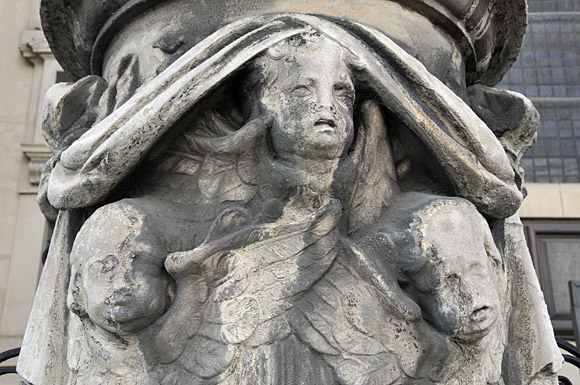
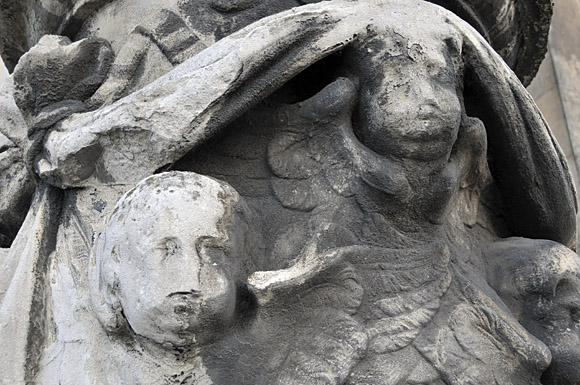
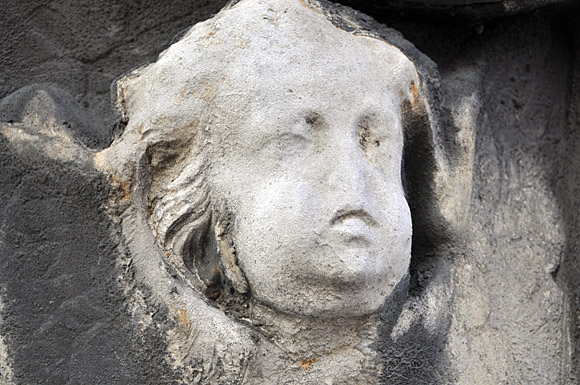

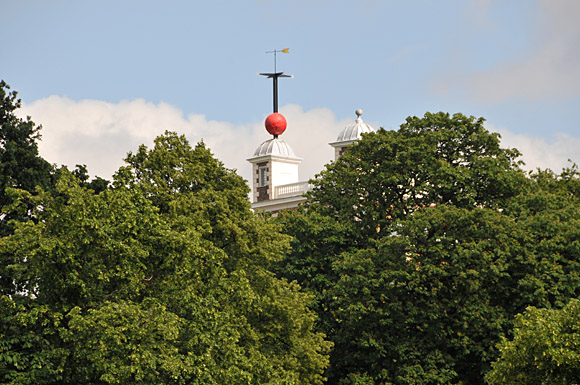
The Greenwich Time Ball, glimpsed through the park trees. Each day, at 12.55, the time ball shuffles half way up its mast.
At 12.58 it rises all the way to the top, and on the stroke of 13.00, the ball falls ready for onlookers to set their watches.
It was first used in 1833 and still operates today.
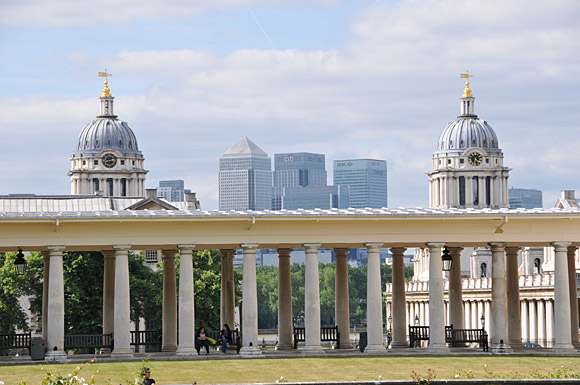
National Maritime Museum, Greenwich
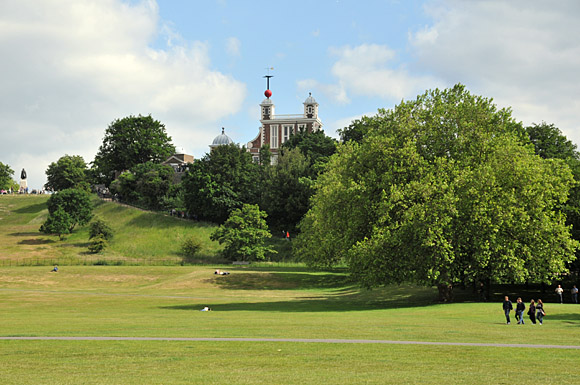
Greenwich Park and Flamsteed House.
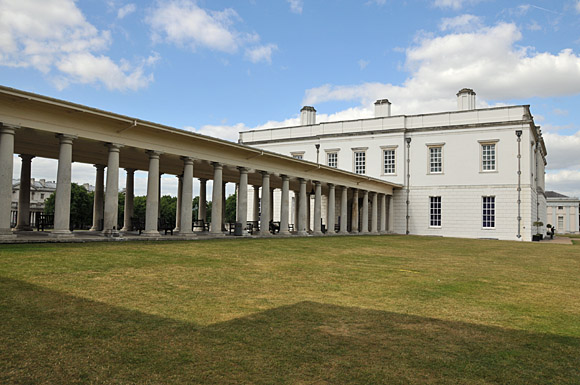
Queen's House, National Maritime Museum, Greenwich.

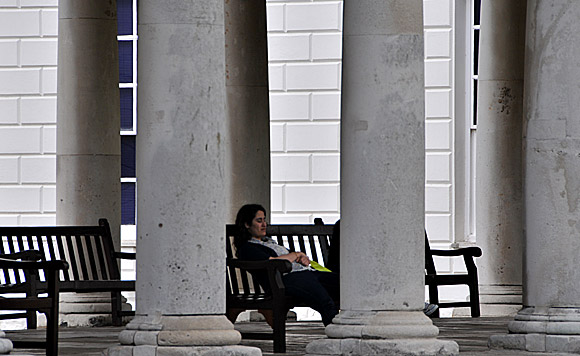
Taking it easy...
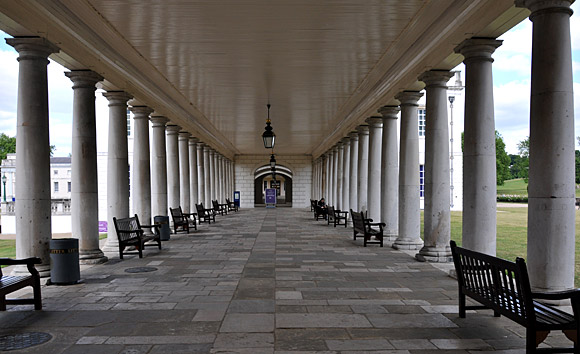
Looking down the colonnade.
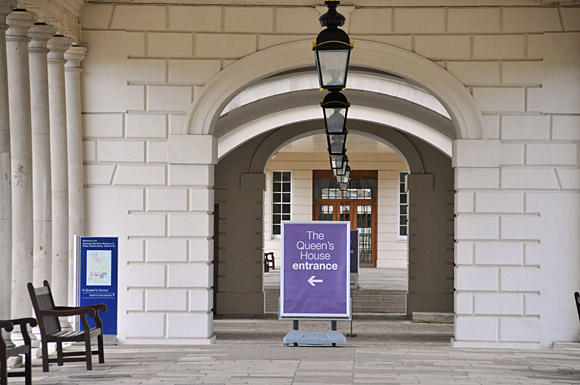
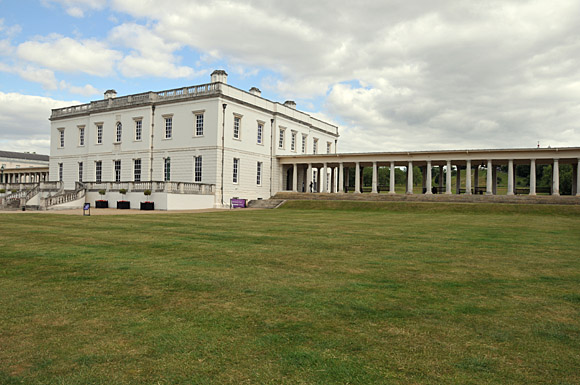
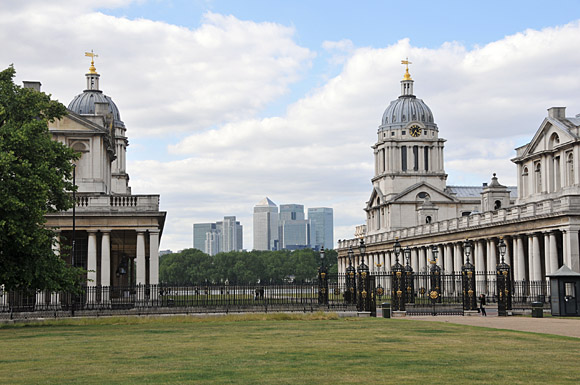
Old and new. Looking across the Thames to Canary Wharf.
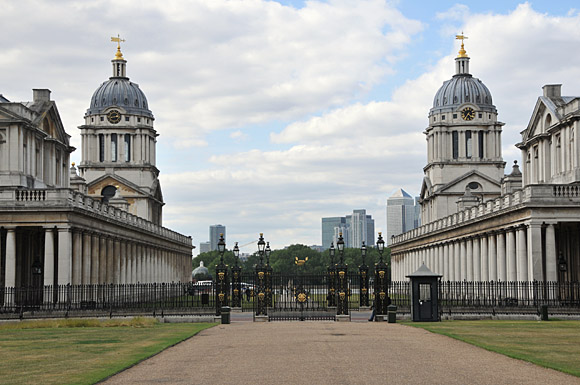

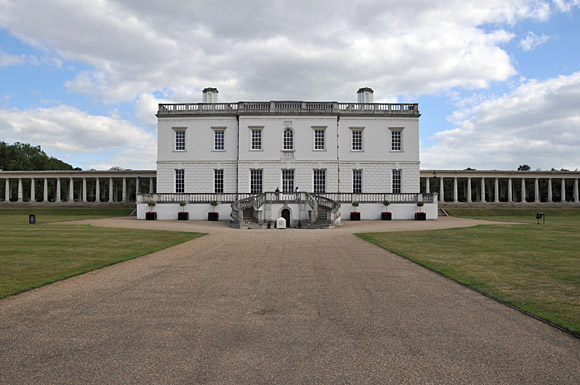
Queen's House, designed by Inigo Jones and structurally completed in 1635.
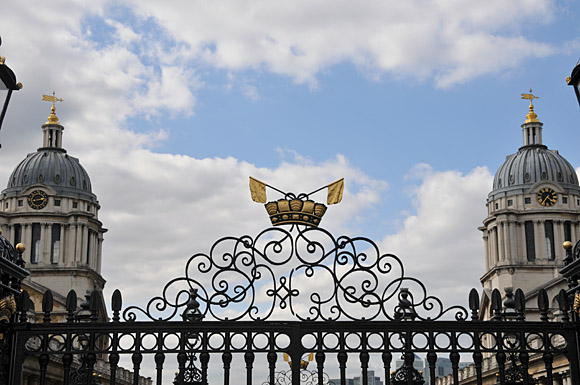
Nautical gate detail.
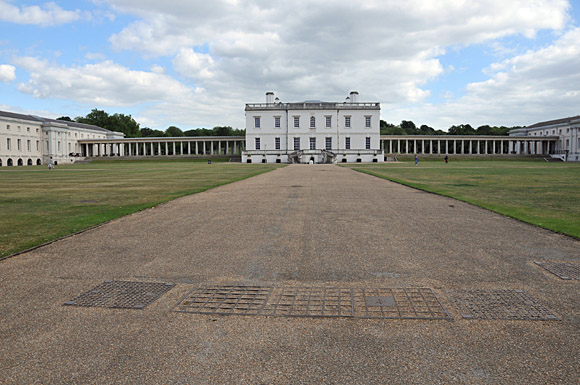
Queen's House.
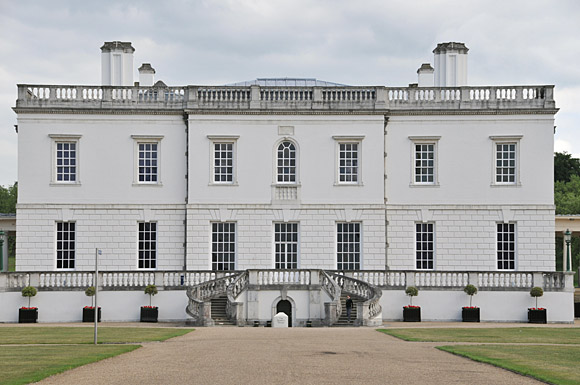

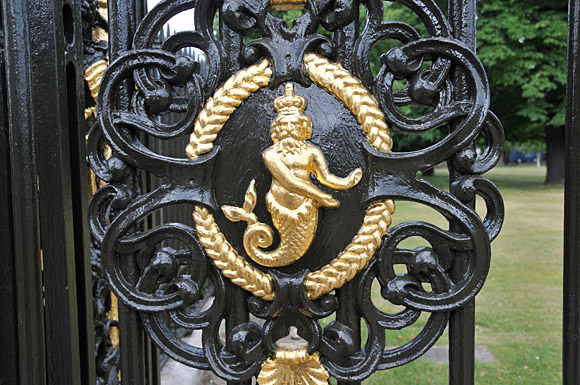
More nautical detail, reflecting Greenwich's long maritime traditions.
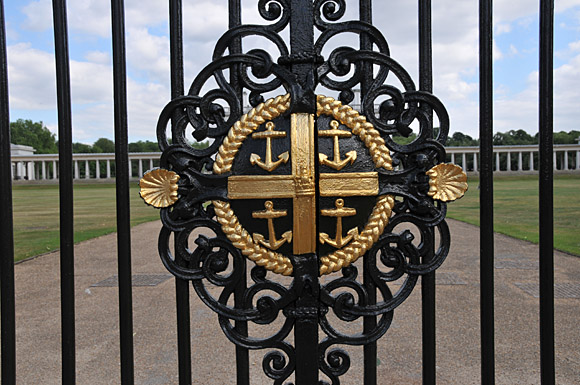
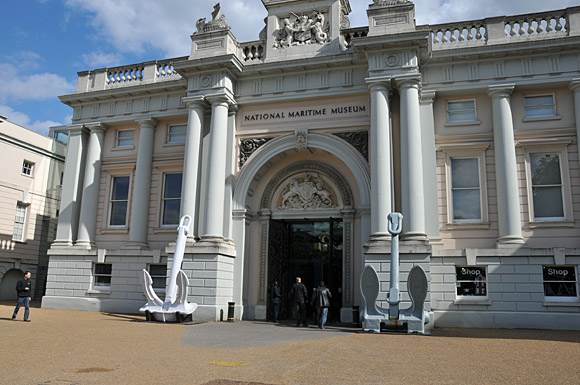
Royal Maritime Museum, with two enormous anchors outside.
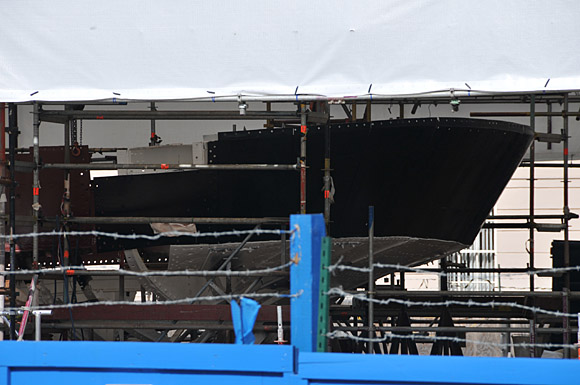
The Cutty Sark under wraps, still undergoing repairs after a catastrophic fire in 2007.
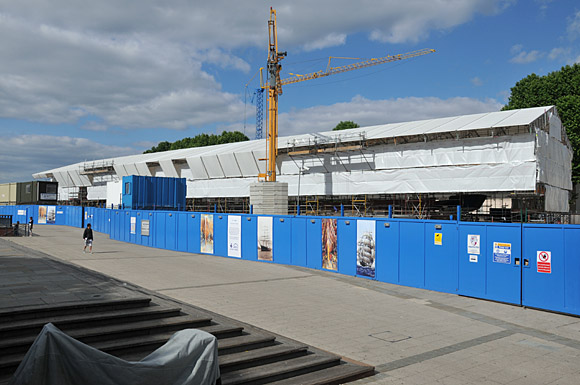
Lurking underneath all that protective plastic sheeting is the 1869 Clipper ship.

«back to London homepage Greenwich tunnel »
|

